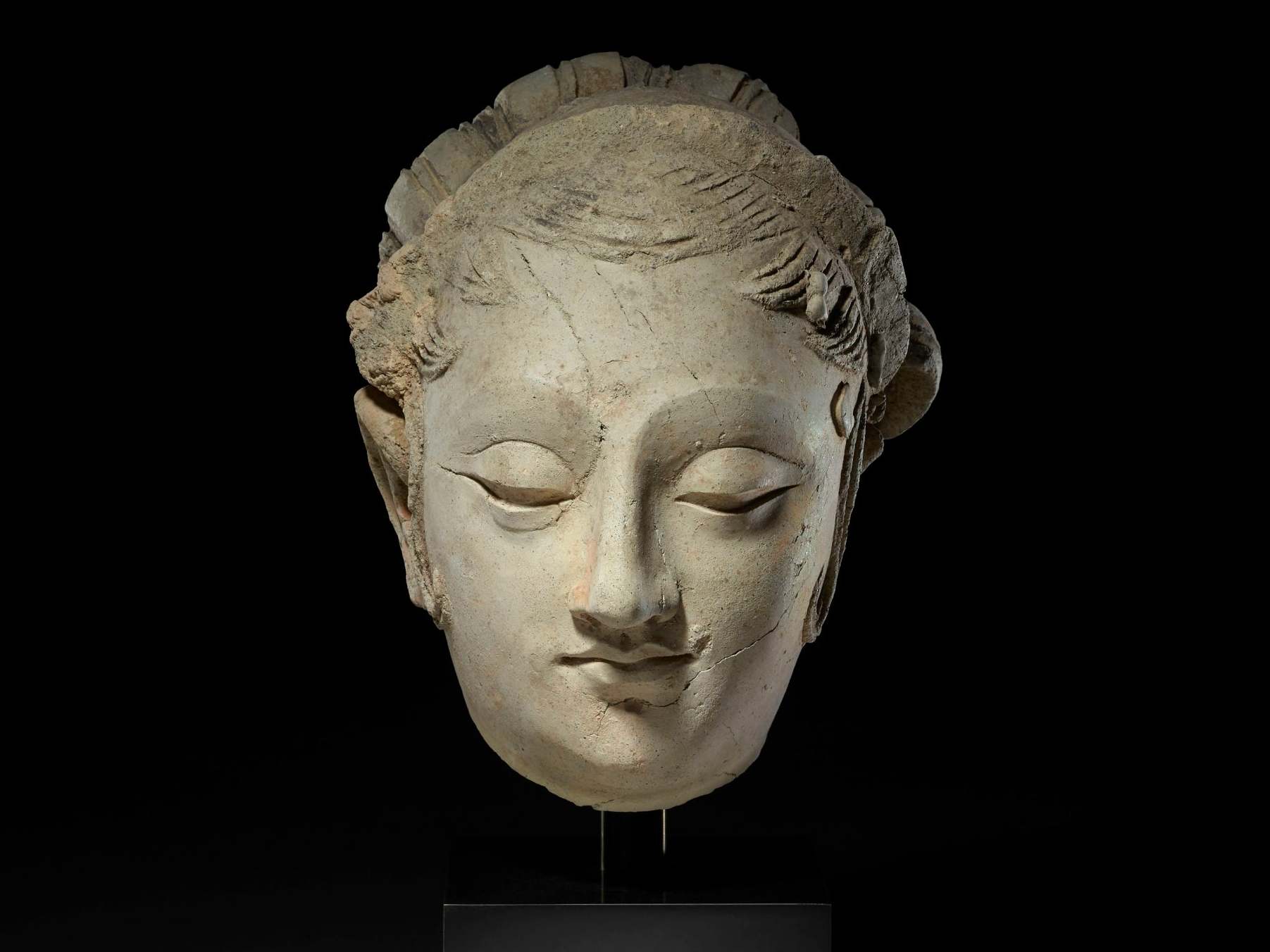British Museum to return precious artefacts looted from Iraq and Afghanistan
Nine Buddhist clay heads dating between the fourth and sixth centuries AD among artefacts set to be sent back

Ancient Buddhist clay heads and other precious artefacts looted from Iraq and Afghanistan and illegally exported to the UK will soon be returned to their country of origin.
The British Museum is working with the UK Border Force and other agencies to help to return the items seized during recent conflicts.
Among the objects due to be returned are a series of Buddhist sculptures, which had been taken illegally from Afghanistan and intercepted at Heathrow Airport in September 2002 shortly after leaving the Pakistani city of Peshawar.
A group of nine heads sculptured in clay feature a portrayal of Buddha, the turbaned heads of meditating bodhisattvas, the bald head of a monk and three larger heads, including one possibly depicting Vajrapani – the spiritual guide of Buddha.
The artefacts – dating between the fourth and sixth centuries AD – will be returned to the National Museum of Afghanistan after they go on temporary display in London, with the permission of the Afghan museum.
Among the items to be returned to Iraq is a collection of tablets bearing cuneiform, one of the earliest systems of writing.
Ancient palace found near Tigris river
Show all 7A haul of 154 Mesopotamian texts written on clay in cuneiform script was seized on entry to the UK in February 2011. Most date to the period between 2100 and 1800 BC and belong to the Ur III and Old Babylonian dynasties.
After a long investigation by HMRC, they will be returned to the Iraq Museum, part of the State Board of Antiquities and Heritage of Iraq.
The British Museum has also developed a collaborative project with antiquities authorities, collectors, dealers and law enforcement agencies called Circulating Artefacts, which aims to identify and return trafficked objects to Egypt and Sudan, with support from the Cultural Protection Fund.
Over the past year, almost 700 illicit artefacts looted and trafficked from Egypt and Sudan have been identified under the scheme.
Hartwig Fischer, director of the British Museum, said: “War, conflict, climate change, globalisation, poverty and migration all play a part in the threats to cultural heritage.
“The museum adopts a systematic approach, working with many colleagues across the world to help preserve, train, conserve, document and understand material culture.
Mr Fischer added: “Sadly, this work is more essential now than ever and the museum will continue and increase its efforts to assist colleagues globally in the preservation and celebration of their cultural heritage.”
Additional reporting by PA
Subscribe to Independent Premium to bookmark this article
Want to bookmark your favourite articles and stories to read or reference later? Start your Independent Premium subscription today.

Join our commenting forum
Join thought-provoking conversations, follow other Independent readers and see their replies